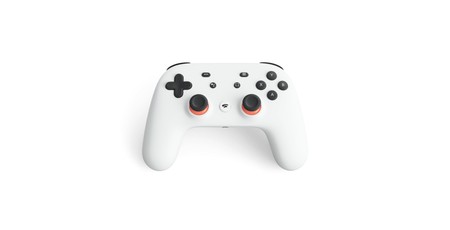Google has officially confirmed the promotion of Project Stream from test to product, announcing a massive cloud gaming push under the name Google Stadia.
First unveiled in October last year, Google's Project Stream aimed to give the company a leg into the always-just-around-the-corner cloud gaming segment - whereby gamers, rather than needing to spend thousands on high-end hardware, can play on low-end client devices which offload the heavy computational lifting to remote servers. It's a service many have attempted but few have turned into a going business - Sony's PlayStation Now, set up following its acquisition of cloud gaming specialist Gaikai, being one of the most successful.
Where Project Stream would simply put triple-A games into the Chrome browser, Google Stadia goes a step further. Features promised, either at launch or to follow, include the ability to jump into a game in seconds from watching a YouTube video, a dedicated controller which connects not to your PC but to your router for reduced latency, and even collaborative gaming where streamers can host other players who can drop in and out at will.
The servers behind the service, Google has confirmed, will be powered by customised AMD graphics processors which sound eerily similar to the Radeon RX Vega 56: 56 Compute Units offering 10.7 teraflops of compute performance, up slightly from a stock RX Vega 56's 10.5 teraflops, and an unspecified amount of integrated HBM2 memory - likely to be 8GB, if it is indeed a tweaked RX Vega 56. The CPU side, meanwhile, is said to be customised x86 processors running at 2.7GHz with 'hyperthreaded' support and AVX2 - though it's not clear whether these, too, are from AMD. Each system has 16GB of combined memory - likely 8GB on the GPU and 8GB system memory - and runs a custom Linux operating system and the Vulkan graphics application programming interface (API).
'We've worked closely with AMD for years on this project, leading to the development of a custom GPU with leading-edge features and performance for Google Stadia,' claims Dov Zimring, Google Stadia developer platform product lead. 'Google and AMD share a commitment to open-source with expertise in Vulkan, open-source Vulkan GPU drivers, and open-source graphics optimisation tools. We’re humbled by the spirit of innovation and collaboration that exists throughout the gaming industry and look forward to pioneering the future of graphics technology with game developers, in open-source.'
The performance of Stadia is said to be impressive: At the Game Developers Conference (GDC) 2019 unveiling last night the company showcased triple-A games running at 4K resolutions and 60 frames per second, though admitted that this chewed up nearly 50Mb/s of bandwidth. Brief hands-on sessions reportedly revealed some noticeable lag, though technology to mitigate this has existed since 2014's unveiling of Microsoft's DeLorean technology.
Another interesting feature of Google Stadia includes the ability to split the incoming video stream off to YouTube, allowing for full-resolution live streaming without the need to encode or upload anything locally - a move which puts it at odds with Amazon-owned Twitch. A dedicated button on the controller will also summon the Google Assistant, which can offer gaming tips and advice. The company has confirmed that it has installed Stadia hardware at 7,500 data centre locations across the globe as part of the Google Edge Network.
What Google hasn't shared yet is the pricing, but it has confirmed that the technology doesn't require dedicated hardware: Although it has designed the low-latency controller, there'll be no microconsole with the client running on existing PCs, smartphones, tablets, and selected smart TVs instead. Those who don't want to splash out on the dedicated controller can also use third-party pads, including the PlayStation 4 controller, the company has confirmed, though this comes without the promise of reduced input lag offered by the Wi-Fi connected, dedicated pad.
More information on the service, which is due to launch this year in the UK and internationally, is available on the dedicated website.

MSI MPG Velox 100R Chassis Review
October 14 2021 | 15:04










Want to comment? Please log in.